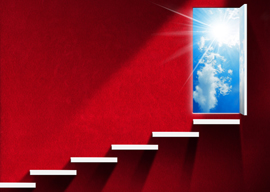
August 12, 2017

Source: Bigstock
I hesitate, in this vale of tears, to bring before the public, however small it might be, my own personal travails, but at least I can claim to be an expert on them, insofar as I experience them myself. Many writers are expert on nothing else but their experience of their own irritations with existence; there are newspaper columnists (or, as the Nigerians would put it, whole newspaper columnists) who write about nothing else. The only justification for this tiny focus is what the British historian Lewis Namier once said: that in a single drop of dew may be seen all the colours of the sun.
The other day, while traveling, I had an attack of gout. It was not my first attack, but it was the first that I recognized as such. In retrospect, the recent pain and inflammation that I had had of the last joint of my little finger must have been gout; but at that time I contented myself with taking anti-inflammatory drugs and not thinking about the diagnosis. It was enough that the pain and inflammation subsided.
This time, there was no mistaking it. My right big toe was red, hot, swollen, tender, and painful. My foot swelled and I could put my shoe on only if I went through what athletes, in their gormless interviews, call the pain barrier.
I remembered my father’s first attack of gout, about fifty years ago. His was much worse and more acute than mine. It arrived like a pistol shot, and the pain was so acute that he could hardly bear for someone to come into the room and disturb the air over his bed. A sheet was out of the question.
My pain, by comparison, was only moderate, and came on gradually. Strangely enough, when I realized what it was, I felt a certain pride. Was not gout associated with high social class and intelligence? I was aware that it was a logical error to think or say that if persons of high social class and intelligence suffered from gout, those who suffered from gout were of high social class and intelligence; but it was an error that I chose deliberately to make, even knowing it to be such. We believe what we want to believe.
Oddly enough, also, I watched the evolution of the swelling and inflammation in my foot with a kind of detached interest: In a certain strange way, I wanted it to get worse and worse, so that I could continue to observe it. In this, though not in other things, I resembled Doctor Johnson. He took the same detached interest in the pathology that his own body manifested, and found the anasarca that preceded his death a matter of interest as well as inconvenience. But I wanted my condition to worsen so that I could boast of it to others. I became like one of those women one overhears on buses, who enumerate their symptomatology with love and pride. A compact exists between them and their interlocutors: I will pretend to be interested in your symptoms if you pretend to be interested in mine. (I think something similar is the secret of the success of Facebook.)
I do not mean to imply that my discomfort was not real. I could walk only with difficulty, for example. The throbbing woke me at night. There was no position in which I could get comfortable. I felt obliged to moderate my diet and abjure alcohol (irrespective of the valid evidence in favor of such dietary abnegation). I could no longer take for granted what I had previously taken for granted.
I managed to turn my discomfort into the occasion of one of the deadly sins: pride. I was scheduled to give a talk or lecture, and did so despite my gout and without, I think, conveying to my audience the extent or intensity of my discomfort. What courage! What fortitude! Is it sinful to be proud of one’s virtuous conduct, even if it is virtuous? Does deadly sin cancel out or negate cardinal virtue?